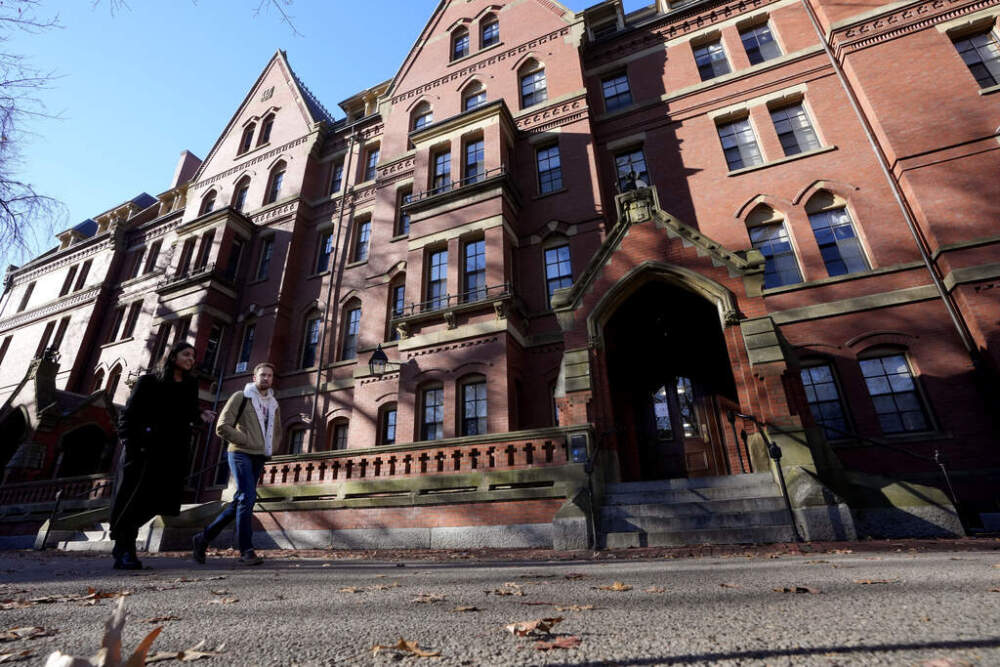Advertisement
Commentary
What the college presidents got wrong about the First Amendment

The recent controversy concerning the presidents of Harvard, Penn and MIT and their statements at a congressional hearing about antisemitism at their universities, has re-ignited long-simmering conflicts over speech on campus. To summarize briefly: In answer to a query about whether a student advocating for the genocide of Jews could be disciplined, the presidents gave legalistic and terse answers as if they had been coached by a law firm (which they apparently had).
The answer should have been an easy “Yes,” but the presidents recited what they seemed to believe was First Amendment law. Harvard President Claudine Gay, a political scientist by training, cited “our commitment to free speech.” Penn President Elizabeth Magill, a legal scholar, explained that “our free speech policies are guided by the United States Constitution.” If hateful speech was aimed at specific individuals or if advocacy became conduct, their answers went, then discipline could follow. If advocacy of any idea, no matter how offensive or dangerous, university policy was to err on the side of protecting the marketplace of ideas on campus.
The presidents got the answer wrong not only as matter of humanity, but legally, too. The First Amendment is not so ham-fisted. Campuses, especially private ones, need not labor under the same rules as the metaphorical soap box.
The presidents got the answer wrong not only as matter of humanity, but legally, too.
Start with a simple truth, easily overlooked. The First Amendment restrains the government, not private parties. The government cannot tell me what to say or what not to say (at least without very good reason). But if a private institution — my employer, for example — tries to influence my speech, there is no constitutional impediment. I can resist, but I have no constitutional complaint. The Constitution is beside the point.
Harvard, Penn and MIT are private institutions. They, like any private university, can establish whatever speech policies that embody their core values. Some institutions might believe that a robust marketplace of ideas on campus — even one that protects despicable ideas — is reflective of their core commitments. Other institutions might believe that academic discourse and inquiry demands a baseline commitment to the mutual equality and humanity of all speakers, teachers and learners in their community. The former set of schools might permit the impersonal advocacy of genocide; the latter set would not. Some professors would rather teach at, and some students would rather attend, a college in the first set. Others in the second. But the Constitution has nothing to say about it. For the university presidents to imply the schools have no choice is inaccurate. (And the debate about whether or not colleges and universities ought to be safe, warm blankets, where students are free of any offense or difficult conversation, is a different issue.)
Advertisement
Even with public universities, the unruly rules of the public square do not translate automatically to the ivy tower. The fact that a university ought to be a place of learning and teaching matters in the constitutional calculus. A classroom is not the sidewalk; a dormitory is not the street corner; a laboratory is not the internet. There is more disagreement among First Amendment scholars about where the line should be drawn at public colleges, but in my view, even a public university could discipline a student calling for genocide. Universities, even public ones, can insist that their students agree to core commitments recognizing the humanity of their peers. Indeed, some institutions might insist that it is impossible to maintain a thriving educational institution without such commitments.
Universities, even public ones, can insist that their students agree to core commitments recognizing the humanity of their peers.
An example will help illustrate. In 2015, members of the SAE fraternity at the University of Oklahoma — a public institution — were filmed joyously chanting that they’d rather see Black students lynched than admit them as members. Dressed in tuxedos on the way to a campus dance, they sang “There will never be a n---- at SAE, you can hang him from a tree.” The university’s president — David Boren, a former U.S. senator — expelled the two students leading the chants. He did so even though the chant was not aimed at any particular person. He was right. The danger of disruption to the campus was too real to have let the racist chant go unanswered.
The same rule should have provided an easy guide for the presidents deciding about a student advocating genocide.
If a student advocates for the genocide of any group — Jewish, Palestinian, or otherwise — a university can consider those views so corrosive to an educational environment to be inconsistent with the university’s mission. The same goes for a student who suggests the lynching of a civil rights icon, or claims that women deserve to be raped. These viewpoints are not, to quote the Supreme Court, an “essential part of any exposition of ideas” anywhere — much less in institutions of higher learning.
There may be tough line-drawing problems, and important disagreements will arise about the meanings of specific phrases or words. But universities should not be allowed to throw up their hands and say the issue is not for them to decide. Universities cannot avoid the tough reality that they have a choice to make.
Universities can support the open and unabashed exchange of viewpoints, even hateful ones. Or they can instead assert core commitments that patrol against the worst kinds of hate speech. Or they can be somewhere in the middle. The Constitution does not make this choice. The universities themselves must.
